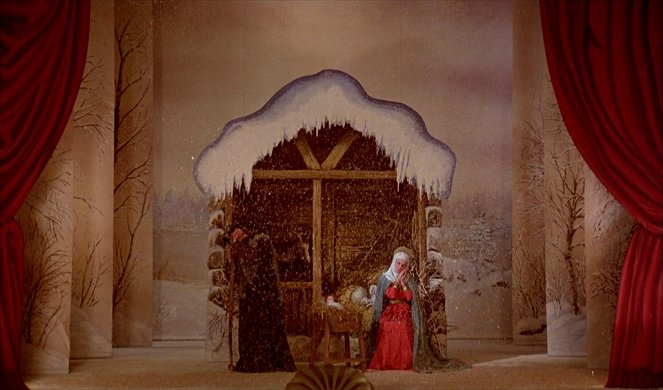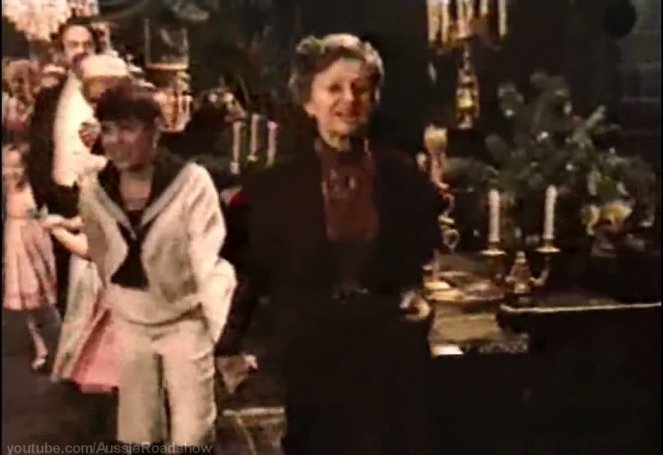Directed by:
Ingmar BergmanScreenplay:
Ingmar BergmanCinematography:
Sven NykvistComposer:
Daniel BellCast:
Pernilla Allwin, Bertil Guve, Börje Ahlstedt, Harriet Andersson, Mats Bergman, Gunnar Björnstrand, Allan Edwall, Stina Ekblad, Ewa Fröling, Erland Josephson (more)Plots(1)
Through the eyes of sister and brother Fanny (Pernilla Allwin) and Alexander Ekdahl (Bertil Guve), the many ups-and-downs of the Ekdahl family at the turn-of-the-twentieth-century are put on display. Bergman intended it as his swan song, and it’s the director’s warmest and most autobiographical film. (MUBI)
Videos (3)
Reviews (7)
An intimately tuned trip to the Swedish bourgeois society of the early 20th century, where Ingmar Bergman projected his childhood memories mixed with his extraordinary imagination into the film. He filmed it as a mature creator who learned from his mistakes and who cared about the acceptance of his work by the wider public. Some of his previous works brought artistic critics to ecstasy, but for viewers, they were on the verge of bearability. The director abandoned the harshly pessimistic view of the world and, although he does not avoid the topic of death and the loss of a loved one here either, optimism prevails, and the final family celebration ends completely idyllically. The story can be considered a confrontation between the thinking and values of the liberal bourgeois upper middle class and Protestant intolerant bigotry. The clash between the bishop and the little Alexander can be seen as a conflict between modernity and remnants of medieval thinking. Love for the theater (Bergman considered himself much more of a theater director than a filmmaker) is inserted into scenes from the family theater environment, which is directly related to the plot, where the little protagonist's mother works as an actress and his father is a theater director. It is no coincidence that Alexander's father dies on stage... The film is dominated by excellent acting performances - thanks to his position, Bergman was able to work with the best Swedish actors, and he also raised a number of actors himself, who knew well what their boss wanted from them. The film has excellent camera work and carefully chosen costumes and sets. In my opinion, this is Bergman's best film. Overall impression 95%. The best scenes are the ones with Alexander's stay in the house of the Jewish merchant, where the exoticism of the environment merges with the child's imagination and creates a surreal atmosphere.
()
Unconventional Ingmar Bergman, who shows that he truly mastered the film medium and presents the viewer with a beautiful and painful childhood in Fanny and Alexander. They are adorable, but the world around them is not only beautiful. Childhood can be fun, it can hurt, and this is beautifully visible in this film, moreover, its visuals are simply enjoyable to the eye.
()
In the same way that Oscar Eckdahl believes that his little theatre reflects a piece of the big world outside it, this little movie is a reflection of our big world too. Fanny and Alexander is the last of the Master’s film works (just television projects followed) and seriously he quitted when he was out on top. The three-hour version is a picture that lives a life of its own. The atmosphere sucks you in and gives you the feeling that you have been watching for much longer than the movie’s running time. But it’s a time pleasantly spent, avidly following the (ir)regular lives of the Ekdahl clan through Alexander’s innocent perspective. There is nothing to fault in terms of acting and technical considerations, perhaps just Bergman’s theatrical directing. But who cares when it’s so indescribably effective. Some day I would certainly like to see the five-hour cut, because there are a couple of places where it trails off a bit.
()
A moment ago, I came out of Bergman's little world, this stage full of people wearing different masks... and I still have a difficult time finding words. Fanny and Alexander is a brilliant film. I say that with all certainty. Brilliant because it reflects a great world. In the colossal and scalding epic of one Swedish family, deep philosophical questions arise about the very essence of who we are. Truth and lie. Love and hate. Faith and doubt. Reality and fantasy. Bergman doesn't ask the viewer questions. He lets them "happen" in front of his eyes. And the viewer has to ask. And the viewer has to look for answers. The principle of European cinema: asking questions, not staring and getting entertained. This film requires an attentive viewer who can read between the lines, search, form an opinion. How many times do word and image get going and characters tell stories? And it's you, the viewers, who have to create them through fantasy, Bergman just gives you an impulse and opens up space for imagination. Fanny and Alexander is truly the master’s opus magni. It depicts an agitated mysticism, displayed explicitly, physically; deep psychology that makes each character into a complex universe and gentle humor (Fellinian kind and ordinary). I don't think this film is idyllic and anthemic; on the contrary, under all the celebratory tones a stream of tragedy flows like an underground river. The guilt that accompanies us and appears when we least expect it. Time we can't stop, which we are reminded of by the sound of the clock. The ubiquitous scars that are the tax on our actions. Even Alexander, in a riveting magical blending with the wonderful Izmail, cannot resist the hatred that will mark him ... And yet, Bergman puts all hope into newborn life. And also into a creative fantasy that – tragic or humorous – can transform the world... Bergman's cinematic world is a child's wonder world, where things radiate the mood of the moment, happening in the most common yet wonderful way... and perhaps that is why their contrast with the cold, evil and rationalized world of adults (embodied by Bishop Edvard Vergerus) is so harsh and painfully steep. Fanny and Alexander is a world in film, an animated slice of another reality where you can fit in, but you don't have to. For me, it is a world in which I find everything that makes film a powerful medium and above all – ART! Folks, go ahead and see if you can still (after all these colossal big productions) do more than just watch the film!
()
"The little guy is giving kisses like a big man!" It started out pretty good, Gustav Adolf was first only into women, but then... This needs to be watched at least as a series with a longer break because otherwise, it is impossible to tolerate the absence of the soundtrack, which turns the viewing experience literally into misery. Otherwise, of course, it's more palatable to regular Bergman viewers; they find their favorite themes (religion, interpersonal relationships, gender), and familiar faces and can easily reflect on the development of Swedish society over the last century. As a solitary film and a first encounter with Bergman, I don't recommend it (not least because this film was the one that cemented that strange era of art films in cheap book stores).
()
Gallery (105)
Photo © Svensk Filmindustri (SF)



Ads